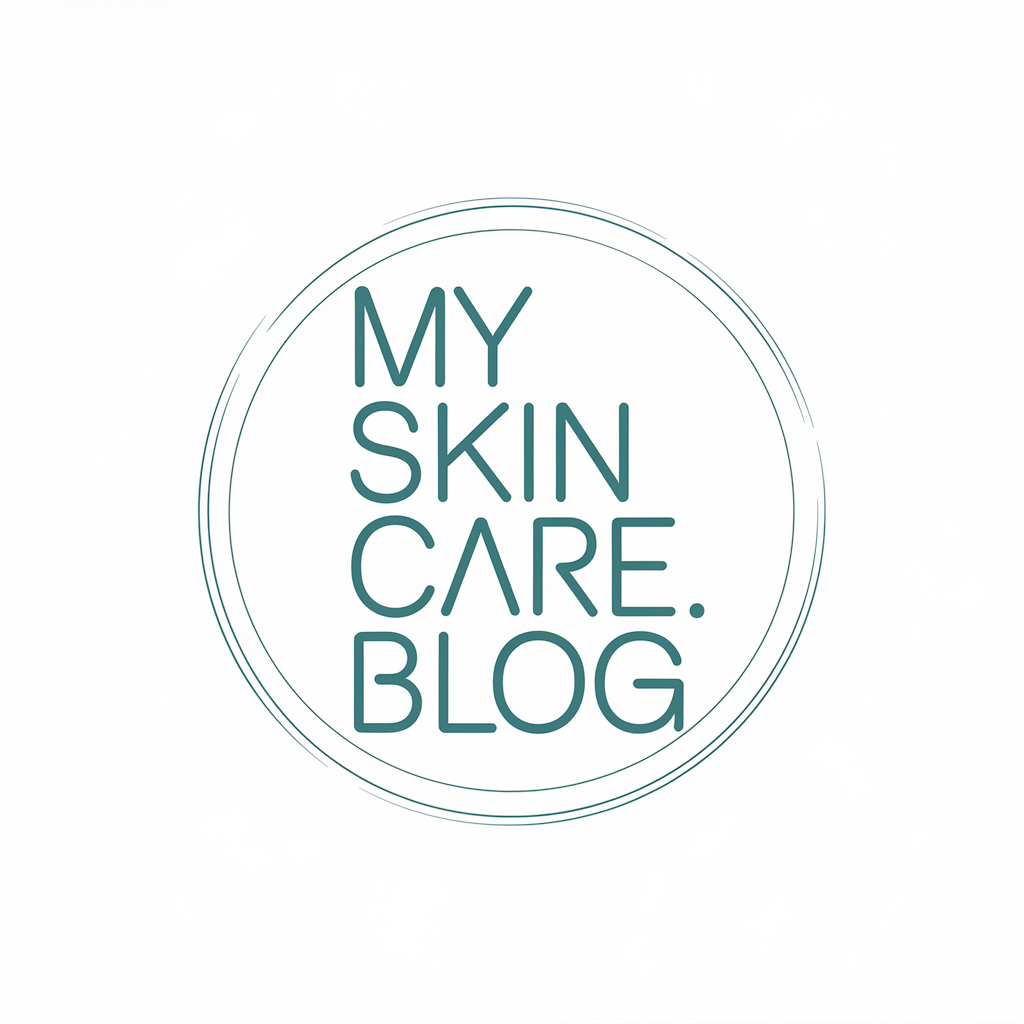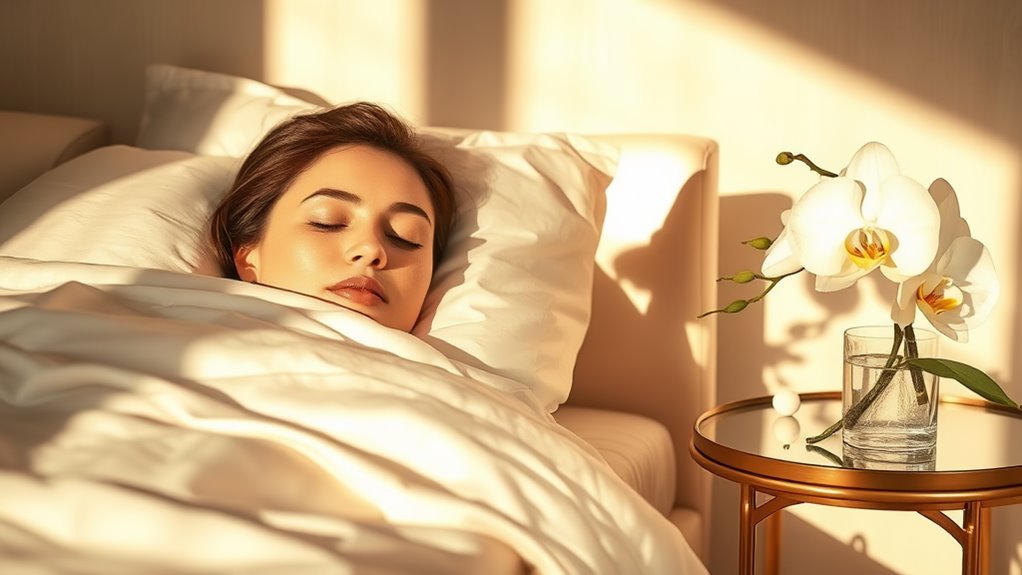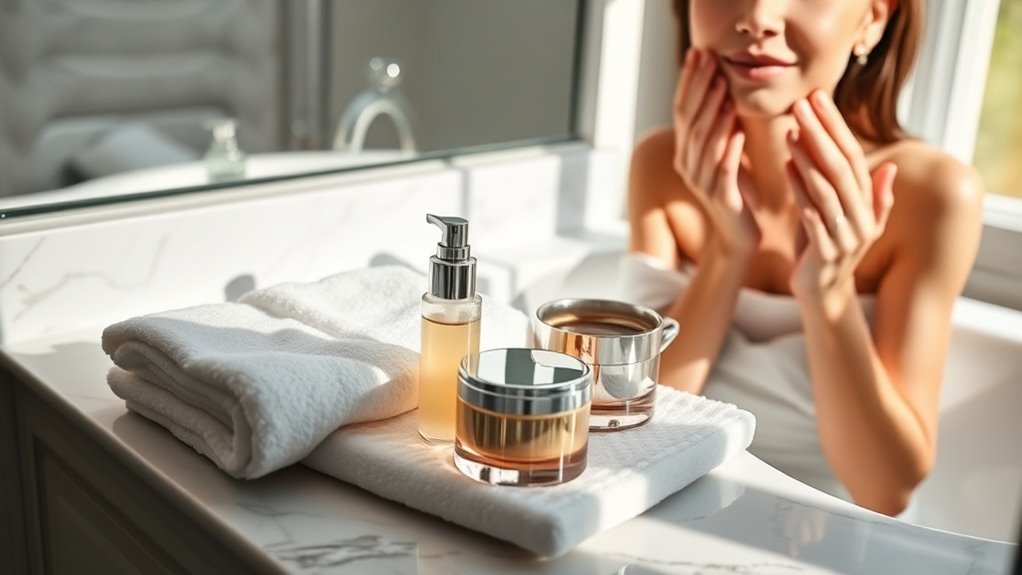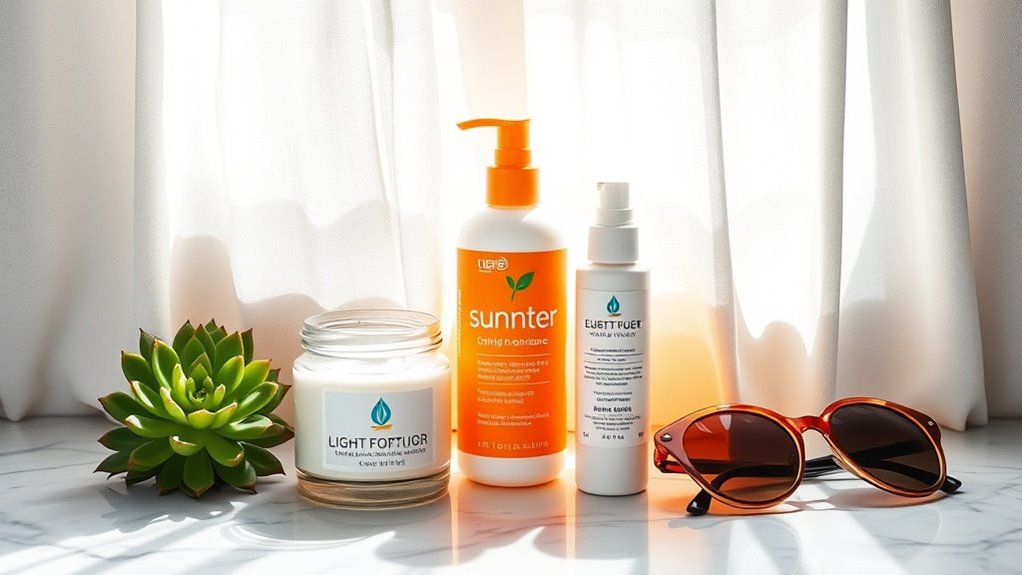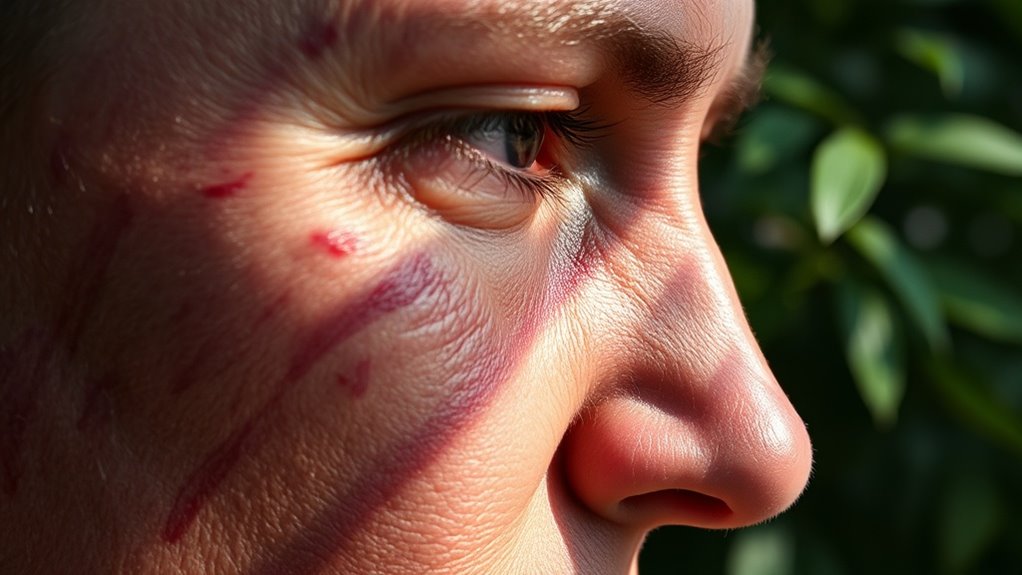Sleep Your Way to Glowing Skin (It’s Real Science)
You might not realize it, but your sleep habits greatly impact your skin’s health. Quality sleep strengthens your skin’s barrier and helps repair damage from daily stressors. It’s during those deep sleep stages that your body produces essential hormones for skin regeneration. Curious about how sleep deprivation can lead to premature aging and dullness? Understanding the science behind these processes can help you discover the secret to a radiant complexion.
Key Takeaways
- Quality sleep strengthens the skin barrier, reducing water loss and maintaining hydration for a healthy glow.
- Sleep facilitates cell repair and regeneration, promoting a radiant complexion overnight.
- Adequate rest helps regulate hormones, minimizing breakouts and maintaining skin’s oil balance.
- Sleep reduces inflammation, decreasing redness and puffiness for a more even skin tone.
- Consistent sleep routines enhance blood flow, delivering essential nutrients for vibrant skin health.
The Science Behind Sleep and Skin Health
How does sleep impact your skin health?
During your beauty sleep, your body undergoes essential repair processes. The skin’s barrier function strengthens while you rest, reducing water loss and keeping your complexion hydrated.
Additionally, sleep regulates hormones like cortisol, which, when elevated, can lead to inflammation and breakouts. Your skin also benefits from increased blood flow, delivering essential nutrients and oxygen.
Moreover, sleep helps reduce dark circles and puffiness by minimizing fluid retention. Deep sleep is crucial for these restorative processes, as it enhances the body’s ability to repair and rejuvenate skin cells. Prioritizing quality sleep allows your skin to rejuvenate, resulting in a more radiant appearance. Ultimately, getting enough rest is essential for maintaining ideal skin health.
How Sleep Affects Skin Regeneration
Wondering why a good night’s sleep is essential for skin regeneration? During sleep, your body undergoes essential repair processes. This is when skin cells regenerate, leading to a healthier appearance. Sleep promotes increased blood flow, allowing nutrients to nourish skin cells effectively. Additionally, lack of sleep can lead to compromised skin barrier function, making it harder for your skin to retain moisture and protect itself from environmental stressors.
| Process | Effect on Skin |
|---|---|
| Cell Regeneration | Repairs damage |
| Increased Blood Flow | Delivers oxygen and nutrients |
| Hormonal Balance | Regulates oil production |
| Reduced Inflammation | Minimizes redness and puffiness |
Prioritizing sleep can greatly enhance your skin’s overall health and vitality. Don’t underestimate its power!
The Role of Hormones in Skin Repair During Sleep
During sleep, your body regulates hormones that play a vital role in skin repair. Key hormones like growth hormone and cortisol influence cellular regeneration and inflammation control, directly impacting your skin’s appearance. Understanding these hormonal mechanisms can help you maximize your skin’s restorative potential while you rest. Additionally, managing psychological stress is crucial, as it can trigger hormonal changes that lead to acne breakouts, undermining your skin’s health.
Hormonal Regulation During Sleep
What happens to your skin while you sleep is closely tied to hormonal regulation, which plays an essential role in skin repair and regeneration.
During sleep, your body produces growth hormone, essential for tissue growth and repair.
This hormone boosts collagen production, enhancing skin elasticity and resilience.
Additionally, cortisol levels drop, reducing inflammation and allowing your skin to recover from daily stressors.
Melatonin, another hormone, supports antioxidant defense, protecting your skin from oxidative damage.
The interplay of these hormones during sleep creates an ideal environment for skin rejuvenation, highlighting the importance of sufficient, quality sleep for maintaining a healthy complexion.
Skin Repair Mechanisms
The hormonal environment created while you sleep plays a pivotal role in skin repair mechanisms.
During this time, several hormones facilitate essential processes that rejuvenate your skin.
Here are four key functions:
- Growth Hormone: Stimulates cell regeneration and repair.
- Melatonin: Antioxidant properties protect skin cells from damage.
- Cortisol: Regulates inflammation, promoting healing.
- Estrogen: Enhances collagen production, improving skin elasticity.
Maximizing your sleep not only enhances these hormonal functions but also helps your skin recover from daily stressors, leading to a healthier, more radiant complexion.
Prioritize restorative rest for ideal skin health.
The Impact of Sleep Deprivation on Skin Appearance
Sleep deprivation greatly affects your skin tone, leading to a dull and uneven complexion.
When you don’t get enough rest, the signs of aging, such as fine lines and wrinkles, can appear more pronounced.
Prioritizing sleep is essential for maintaining youthful, radiant skin.
Effects on Skin Tone
A lack of sufficient rest can greatly alter your skin’s appearance, leading to a dull and uneven tone.
When you’re sleep-deprived, your body struggles to repair itself, affecting the skin’s health.
Here are four specific effects of sleep deprivation on your skin tone:
- Decreased Blood Flow: Poor sleep reduces circulation, making your skin appear pale.
- Increased Stress Hormones: Elevated cortisol levels can lead to inflammation and discoloration.
- Impaired Barrier Function: Lack of sleep disrupts skin’s protective barrier, causing uneven texture.
- Reduced Cell Regeneration: Sleep is essential for skin cell renewal, resulting in a tired-looking complexion.
Signs of Aging Accelerated
How does insufficient sleep contribute to the acceleration of aging signs on your skin? Sleep deprivation leads to increased cortisol levels, causing skin inflammation and breakdown of collagen. This results in fine lines, wrinkles, and a lackluster complexion. Additionally, your skin’s repair processes are compromised, further enhancing these visible signs of aging.
| Sign of Aging | Impact of Sleep Deprivation | Potential Remedies |
|---|---|---|
| Fine Lines | Increased due to collagen loss | Adequate sleep, hydration |
| Dark Circles | Blood vessel dilation | Cold compress, rest |
| Dull Skin | Impaired regeneration | Sleep, exfoliation |
| Increased Redness | Heightened inflammation | Anti-inflammatory products |
Sleep Stages: What Happens to Your Skin
What really happens to your skin during the various stages of sleep?
Each stage plays a vital role in skin health.
Here’s how:
- Deep Sleep: Skin cells regenerate and repair, promoting collagen production.
- REM Sleep: Blood flow to your skin increases, enhancing nutrient delivery.
- Light Sleep: Hormones like cortisol decrease, reducing inflammation and stress.
- Sleep Cycles: Consistent sleep cycles boost overall skin resilience and hydration.
Tips for Improving Sleep Quality for Better Skin
Achieving deeper sleep stages is key to revealing your skin’s potential for rejuvenation and radiance.
To improve sleep quality, establish a consistent bedtime routine, aiming for 7-9 hours of sleep. Create a sleep-conducive environment by keeping your bedroom cool, dark, and quiet.
Limit screen time an hour before bed, as blue light disrupts melatonin production. Incorporate relaxation techniques like deep breathing or meditation to ease your mind.
Avoid heavy meals, caffeine, and alcohol close to bedtime, as they can interfere with sleep cycles.
Finally, consider a skincare routine that promotes hydration and repair, enhancing your skin’s recovery during sleep.
The Connection Between Sleep and Skin Conditions
Have you ever wondered how your nightly rest impacts skin health?
Quality sleep plays a critical role in preventing and managing skin conditions.
When you skimp on sleep, your body struggles to repair and regenerate skin cells.
Here’s how sleep affects your skin:
-
Increased Inflammation: Lack of sleep may exacerbate conditions like eczema and psoriasis.
-
Impaired Barrier Function: Sleep deprivation weakens your skin’s natural barrier, leading to dryness.
-
Accelerated Aging: Poor sleep contributes to collagen breakdown, promoting wrinkles.
-
Hormonal Imbalance: Disrupted sleep affects hormones, which can trigger acne flare-ups.
Additionally, overnight solutions such as targeted treatments can help mitigate these effects while you sleep.
Prioritize sleep for healthier skin!
